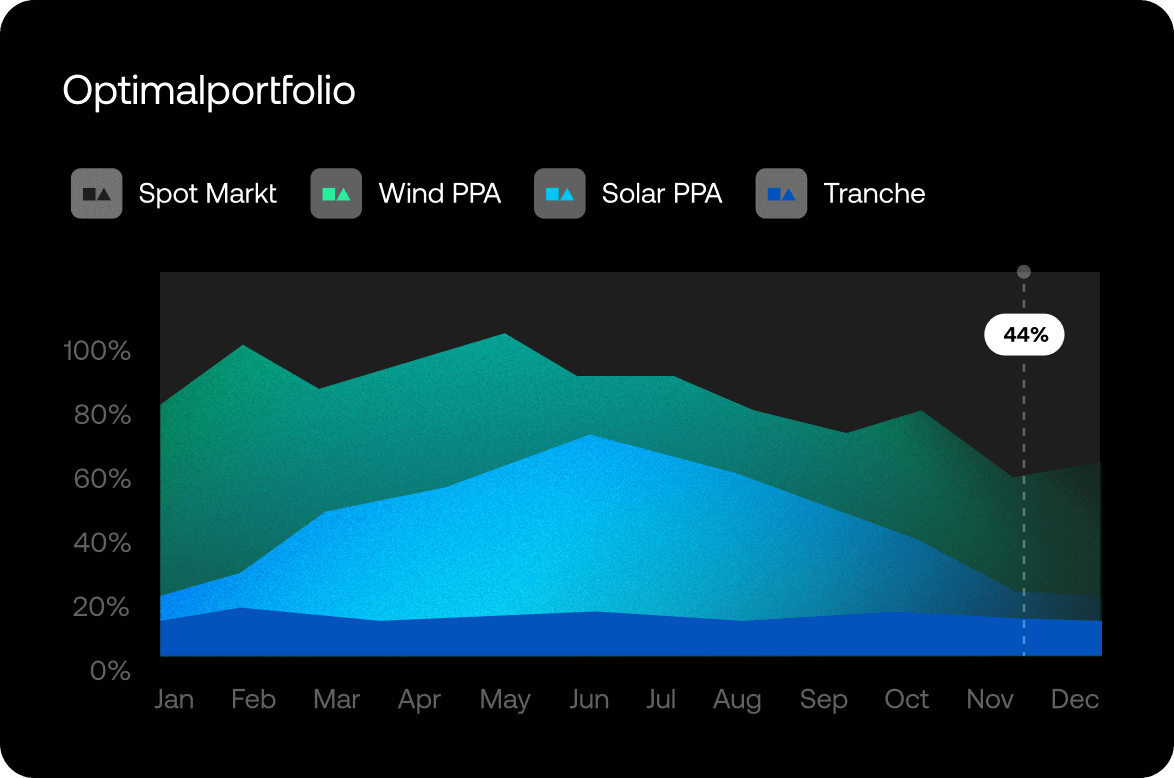All Articles about Renewables
The Hamburg-based power trader, direct marketer, and power supplier CFP FlexPower has founded an independent subsidiary to expand the development and operation of grid-connected large battery storage systems in Germany. The new company, FlexPower Energy, focuses on providing energy storage systems rated between two and 50 megawatts of power.
Battery energy storage systems are becoming a cornerstone of Germany’s energy transition. We explore the financial opportunities and risks in Germany’s wholesale and balancing markets.
With Germany on the brink of a pivotal election, we want to share our high-level views on energy policy and the key considerations for voters. We’ve outlined five fundamental theses to keep this concise and to the point.
FlexPower and enmacc are collaborating to establish a liquid and scalable market for standardised wholesale Solar and Wind Power Purchase Agreements (PPAs).
Electricity (cross-product) price volatility has historically been closely linked to overall price levels. This trend seems to have ended in 2024 in Germany, as low marginal cost renewables are pushing the overall wholesale price level down, while peakers such as gas and batteries need to finance their investments in relatively few but increasingly expensive production hours
Germany has reached a record level in the installation of solar systems with 15 GW in 2023. However, problems are now beginning to emerge with rooftop solar.
FlexPower GmbH, PowerField Energy B.V., and Spectral have commenced trading operations for the co-located Battery Energy Storage System (BESS) and Photovoltaic (PV) plant in Wanneperveen.
The FlexIndex measures on a daily basis the revenues that operators of flexible assets can achieve in Germany’s short-term spot market. The index is based on a reference battery with a storage capacity of one megawatt-hour and a power of one megawatt.
In recent years, if you’re involved in the power sector, you’ve likely come across discussions about Power Purchase Agreements (PPAs). Some consider them a cure-all for advancing the energy transition, and we, too, recognize their crucial role. However, it’s essential to grasp that a PPA is essentially a contract for buying or selling power, without specifying the type.
Next-generation energy provider trawa and Hamburg-based electricity trader FlexPower have entered into a long-term partnership. This collaboration allows businesses of all sizes to source renewable energy easily and cost-effectively. Utilizing Artificial Intelligence (AI), trawa develops an optimized power procurement strategy based on historical consumption and current market data, aiming to reduce emissions and costs. As a market partner, FlexPower provides the necessary market access through its own electricity trading and a platform for Power Purchase Agreements (PPA) with renewable energy facilities to implement the optimized power procurement.










